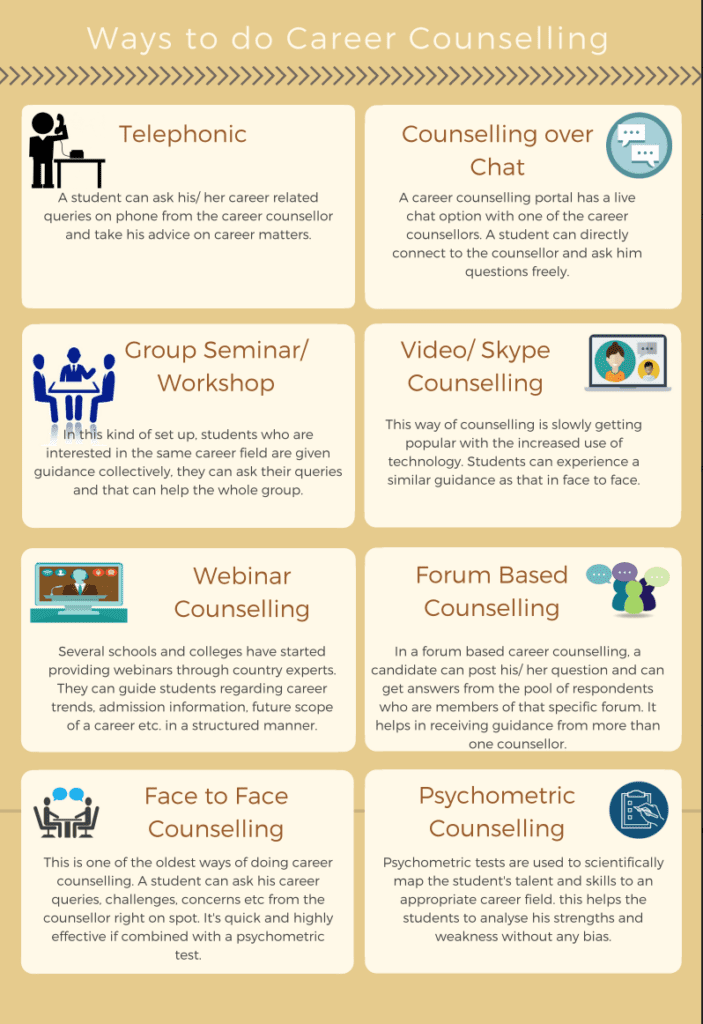Career Counselling For Career In Biotechnology, there are many paths you can take depending on your interests and strengths. Biotechnology is a rapidly growing field with numerous career opportunities in research and development, quality control, manufacturing, sales and marketing, regulatory affairs, and more.
One possible career path is to pursue a degree in biotechnology or a related field, such as biology, biochemistry, or biomedical engineering. This can prepare you for careers in research and development, where you can work on developing new drugs, therapies, and diagnostic tests. Other career options include working in quality control, ensuring that products meet regulatory standards, or in manufacturing, where you can help produce biotech products on a large scale.
Career Counselling For Career In Biotechnology
1. What Is Biotechnology?
Biotechnology is the use of living organisms, cells, and biological systems to create or improve products, processes, and technologies. It encompasses a wide range of scientific fields, including genetics, molecular biology, microbiology, biochemistry, and engineering.
Biotechnology has a broad range of applications, including agriculture, medicine, environmental science, and industry. For example, biotechnology can be used to develop new drugs and therapies for diseases, create genetically modified crops that are resistant to pests and environmental stress, produce renewable energy sources such as biofuels, and develop biodegradable materials to reduce waste.
2. B.E. Biotechnology: Course Highlights
A Bachelor of Engineering (B.E.) in Biotechnology is a four-year undergraduate program that combines engineering principles with biology and biotechnology. The program focuses on the application of engineering techniques and technologies to biological systems. Here are some of the course highlights of a B.E. in Biotechnology:
- Curriculum :- The B.E. in Biotechnology curriculum includes courses in biology, biochemistry, microbiology, genetics, bioprocess engineering, biostatistics, and bioinformatics. Students also learn about engineering principles such as chemical and mechanical engineering.
- Lab Work :- The program includes a significant amount of laboratory work, where students learn to use various tools and techniques to manipulate biological systems. This includes genetic engineering, tissue culture, fermentation, and other bioprocessing techniques.
- Internships :- Many B.E. in Biotechnology programs offer internships or co-op opportunities, where students can gain practical experience in a biotech company, research lab, or other relevant industry.
- Electives :- Students may have the opportunity to choose elective courses that align with their interests and career goals. Elective courses may include topics such as pharmaceutical engineering, biomanufacturing, bioethics, or biomaterials.
- Capstone Project :- Many programs require students to complete a capstone project, where they apply their knowledge and skills to solve a real-world biotech problem. This project often involves working with a biotech company or research lab.
Get Career Counselling for Professionals
3. B.E. Biotechnology: Eligibility
The eligibility criteria for a Bachelor of Engineering (B.E.) in Biotechnology program may vary depending on the institute or university offering the program. However, some common eligibility criteria are :-
- Educational Qualification :- Candidates should have completed their 10+2 education from a recognized board or equivalent with Physics, Chemistry, and Mathematics/Biology as compulsory subjects.
- Minimum Marks :- Candidates should have secured a minimum of 50% – 60% aggregate marks in their 10+2 education, depending on the institute or university.
- Entrance Exam :- Some institutes and universities may require candidates to clear an entrance exam such as JEE Main or state-level engineering entrance exams.
- Age Limit :- There is no specific age limit for admission to B.E. in Biotechnology programs.
4. B.E. Biotechnology: Admission Process
The admission process for Bachelor of Engineering (B.E.) in Biotechnology programs may vary from one institute or university to another. However, here are some common steps involved in the admission process :-
- Application :- Candidates must fill out the application form provided by the institute or university offering the B.E. in Biotechnology program. The application form may be available online or offline.
- Entrance Exam :- Some institutes or universities may conduct their entrance exam for admission to B.E. in Biotechnology programs, while others may consider scores from national or state-level engineering entrance exams such as JEE Main, MHT-CET, or COMEDK.
- Counselling/Interview :- Shortlisted candidates may be called for counselling or an interview round to assess their suitability for the program. The counselling or interview may be conducted online or in-person.
- Document Verification :- Candidates who are offered admission must submit their original documents for verification, including their 10+2 marksheets, entrance exam scores, and other relevant documents.
- Fee Payment :- Candidates who are offered admission must pay the required admission fees to secure their seat in the program.
5. B.E. Biotechnology: Top Institutes
Here are some of the top institutes offering Bachelor of Engineering (B.E.) in Biotechnology programs in India :-
- Indian Institute of Technology (IIT), Kharagpur
- Indian Institute of Technology (IIT), Guwahati
- Indian Institute of Technology (IIT), Hyderabad
- Birla Institute of Technology and Science (BITS), Pilani
- Manipal Institute of Technology (MIT), Manipal
- Vellore Institute of Technology (VIT), Vellore
- SRM Institute of Science and Technology, Chennai
- PSG College of Technology, Coimbatore
Get Career Counselling for Professionals
6. B.E. Biotechnology: Career Prospects
A Bachelor of Engineering (B.E.) in Biotechnology can open up various career opportunities for graduates. Here are some of the career prospects for B.E. Biotechnology graduates:
- Biomedical Engineer :- Biomedical engineers work on designing and developing medical equipment and devices, such as artificial organs and prostheses. They also work on developing new medical procedures and techniques.
- Biotechnologist :- Biotechnologists work on developing and improving products and processes that use living organisms or their derivatives. They work in fields such as agriculture, pharmaceuticals, and food processing.
- Research Scientist :- Research scientists work on designing and conducting experiments to develop new products and processes in fields such as healthcare, agriculture, and environmental conservation.
- Quality Control Analyst :- Quality control analysts work on ensuring that products and processes meet the required quality standards. They perform tests and inspections on products and work with manufacturing teams to improve processes and products.
- Technical Writer :- Technical writers create and edit technical documents, such as user manuals, product specifications, and research papers, in fields such as biotechnology, healthcare, and engineering.
- Entrepreneur :- Graduates with a B.E. in Biotechnology can also start their own biotechnology-based venture, working on developing innovative products and processes.
7. Become A Master With Careerguide
CareerGuide is an online platform that provides personalized career guidance and support to individuals seeking to advance their careers. By using CareerGuide, individuals can receive expert advice, tools, and resources to help them make informed decisions about their education, career path, and job search. CareerGuide offers a range of services, including career assessments, resume building, interview preparation, and job search strategies. For more information about Become a Mastere with Careerguide.
















